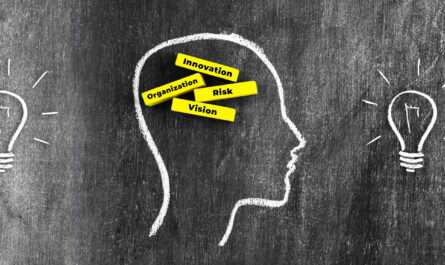There might be many disagreements between social scientists but it is a common belief that the Liberty of people is essential in a society. Even common people understand the essence of liberty, especially in developed countries. But, in this too there lies a disagreement regarding the perception of liberty. Different experts and people see freedom differently. Is it simply that anyone can do anything they want to? Or that people are free from mental stress and tension? Or is it that society as a collective group is free? This is what makes the concept of Liberty a very debatable topic in political philosophy but rather than digging into it there is a need for a practical approach to it.
What’s important to determine is the kind of liberty that is practical and compatible with human behavior and action. For this, there would be a need to bring the concept of Responsibility. If one is given the liberty to do something, then one must take responsibility for it too. A person can’t do whatever he likes but a person can do whatever he likes and be accountable for his actions too. Many lately have forgotten or have neglected to acknowledge this fundamental reality of liberty.
Without adding responsibility to liberty, we make it an unstable phenomenon and make it difficult to justify its existence. Why is liberty needed? Because it is moral? That might be one argument but the fundamental reason why liberty is needed is because it gives the best result. It is individual liberty that leads to growth, innovation, and prosperity. It is capable of bringing the best out of an individual if that individual has responsibilities.
Adam Smith began the field of economics by saying that when each and everyone benefits themselves then that benefits the society. This is the logic based on which economics began (which could be debatable) but was later challenged by socialists. Earlier there were many debates about socialism vs capitalism or simply put collective planning vs invisible hand for being the most efficient economic system. But the arguments of Mises and Hayek in the socialist calculation debate proved planning to be fatal and also the mainstream argument of the incentive problem was very fundamental in debunking socialism. Then came the concept of innovation by Schumpeter explaining how the market system leads to innovation and further evolution. Like that many arguments were formed highlighting the fallacies of collectivism and the importance of individualism. This is the reason why today technical economics is market-based primarily. Especially at the micro level, economics sciences are based on markets and anything else propagated has been rejected scientifically and is to be considered unscientific.
Arguing in favor of Liberty on a moral basis can turn out to be a hopeless case. Because why should one only care about humans among all living beings? Why not others? Many animals and other living beings are hunted or killed by other living beings. It can be a forest animal or a bird or even microorganisms like bacteria and others. Why should the lives of one group be important only? But, if the lives of all are preserved then survival would be impossible, thus there is a need for scientific justification of liberty which can be given with the help of economics by adding responsibility to it.
Human resources are meant to contribute and not merely enjoy their liberty. They can contribute when they have incentives and need to contribute. This is provided by the market system. In a market system, there is private property that provides freedom and choices to consumers to make decisions, workers and employees to alter their firms, and private property owners to start up their firms. Every individual in a market system is free to choose an action but is responsible for the consequences of it too. A person starting up the business would be accountable for the losses if it fails but on the other hand, he would take all the net profit with himself if it succeeds. One is free to do what they like in the market with given opportunities and choices but they can’t do it carelessly either. A consumer can buy anything, that is freedom but their budget and the consequences of buying a product are their responsibility.
Economics very well understands the logic of liberty. We can’t expect or ask to change the intentions and actions of people but build a system that can utilize those intentions into the best possible actions of people. That is the essence of social science in the first place.
But, many don’t seem to understand the concept of liberty that well. There are attempts to take away the “bad” part of liberty keeping the good one. Although this isn’t a bad attempt while doing so there is must need to keep in mind what the system and its people are sacrificing. It’s not easy to attain “additional” benefits from exogenous factors to “make it better” but rather if anything is added then it is done at the sacrifice of individual liberty. That is not very “Pareto optimal”. Therefore, coercion of government can be justified on an economic basis where it is needed, like for public goods and externalities (not every case). This system of liberty and responsibility is not only fair or just but is also a system that is needed for better economic improvements. If not, then how would there be more entrepreneurial innovation in the economy or consumer sovereignty?
Some people don’t like liberty, whether they are rich or poor. They rather fear individual liberty because of responsibility or simply want another alternative of their preference. So it’s not possible to go according with such individuals facing personality disorders of no matter Cluster A, B or C that includes likes of narcissists, dependent and histrionic. The reason is that 1) those systems won’t be as productive, 2) heterogeneous preferences get difficult to handle, 3) for some particular preference of “liberty” the liberty of others cannot be denied, and 4) the system cannot be based on few people’s psychological or other social problems because everyone might have been facing with some problems that aren’t homogenous.
Nobody is born the same physically or behaviorally and also isn’t born with the same situation and condition. The world wasn’t made in a way where endowments are equal and endowments in this case aren’t just the resources either. Neither everything is homogeneous otherwise the world would have been the uninteresting place to be. Though at times this fact of life seems unfortunate and cruel there are many important, positive, and interesting aspects of life associated with it too. Hence one can’t make everyone equal but rather give them equal treatment with the rule of law to have their liberty and take responsibility.
Many are there who want freedom but aren’t ready to take their responsibility. Many are there who will claim that they can do whatever they want but expect society to accept it too. One can’t expect society to accept or support them in their action, if they are willing to go further in doing something (in their personal space) then they will have to do it bearing the consequences in mind. Yes, but neither does society have the right to stop letting a person do something that isn’t harming anyone’s liberty. One can’t expect society to go by anyone’s beliefs or a person to go by so-called societal norms, whether spiritual or moral. Each one is to be left to their own. If one is taking their responsibility, then nobody must have the right to affect them.
There are also beliefs behind disliking individual liberty because of the conservative mindset. One doing anything in their personal space seems to hurt those who don’t like seeing changes. They want everything to be like it was earlier. This belief hinders the evolutionary aspect of economics. Those conservatives must remember that, what they are supporting is also a result of evolution and change, it was possible because it was let to happen. Evolution involves trial and error of individuals and is a natural process that needs to be respected.
Another major belief in disliking liberty is because of the concept of individual responsibility associated with it. Either these people aren’t capable of taking their responsibility or they have certain explicit or implicit assumptions that people can’t take responsibility whether it be due to a superiority complex or mere concern. However, the capability of individuals in major cases can be improved only when they are left to give it a try. How is the presumption justified that people are irrational or incapable of leading their lives?
Liberty includes freedom, independence, and the rights of individuals. Liberty doesn’t mean liberty of society or nation that makes the majority dominate over the minority with no justification that the probability of the majority being right is high or perfect on a particular issue. This kind of liberty is given to a certain amount of people who have been advantageous over others and start oppressing them. In the name of freedom what is usually done is freedom of a particular group only. Democracy with this approach has rather become an excuse for coercion by the government. It is not the people’s decision if only the majority agree to it.
It is undeniable that democracy is important for freedom but it only provides political freedom and not economic freedom. Economic freedom is essential for individual liberty and the recent developments in countries like the UAE or Singapore having more freedom than the largest democracy India says a lot. Both are complementary to one another though but democracy is important only where market mechanism can’t take its place. The first task is to ensure that there is economic freedom leading to opportunities for entrepreneur and consumer sovereignty and then that there is democracy in those sectors or simply for Public goods where market mechanisms aren’t meant to work. Countries like India went the opposite way after independence which let the country face the consequences of it too.
Democracy might have its advantages but for private goods, consumer sovereignty is better than Democracy. 1) the former isn’t based on majority decisions, 2) votes are not equal and rather consumers vote with their money (every individual must earn their votes), 3) there is more competition and freedom of choices based on individualism rather than collectivism and 4) in the market there are not only explicit knowledge but also tacit knowledge that has to be conveyed and that is done by free-flowing price system in a decentralized market system with consumer sovereignty.
Those who support voting for everything and think majority decisions are gold must remember that the voters who vote based on information and insights mostly come from the minority section of society. Innovation, inventions, and important discoveries are made by those who belong to the minority of society. Ironically those given the task to take control over all based on majority decisions are the minority too. But hypocritically a single minority is given the right to control over all attempting to deprive opportunities of different groups of minorities that are very important to our society.
Liberty might be loved by all but the true meaning of liberty is ignored by many and many claimed liberty lovers might not like that kind of liberty. A robot or machine is better than a human without liberty. The social structure has been in such a way that every free person has the ability and capability to survive and contribute and that’s no more the moment their freedom is taken away. But, these are nothing if there’s no responsibility associated with it too.
Intellectuals or leaders must remember they are a mere part of this social structure and not above it to belittle the ability of others. We don’t even know what humans are capable of. No matter AI or anything that comes in the process, it will only make humans better and not otherwise. Liberty allows knowledge to flow smoothly which further allows the evolutionary process. These long-run phenomena must be kept in mind while dealing with short-run problems.




